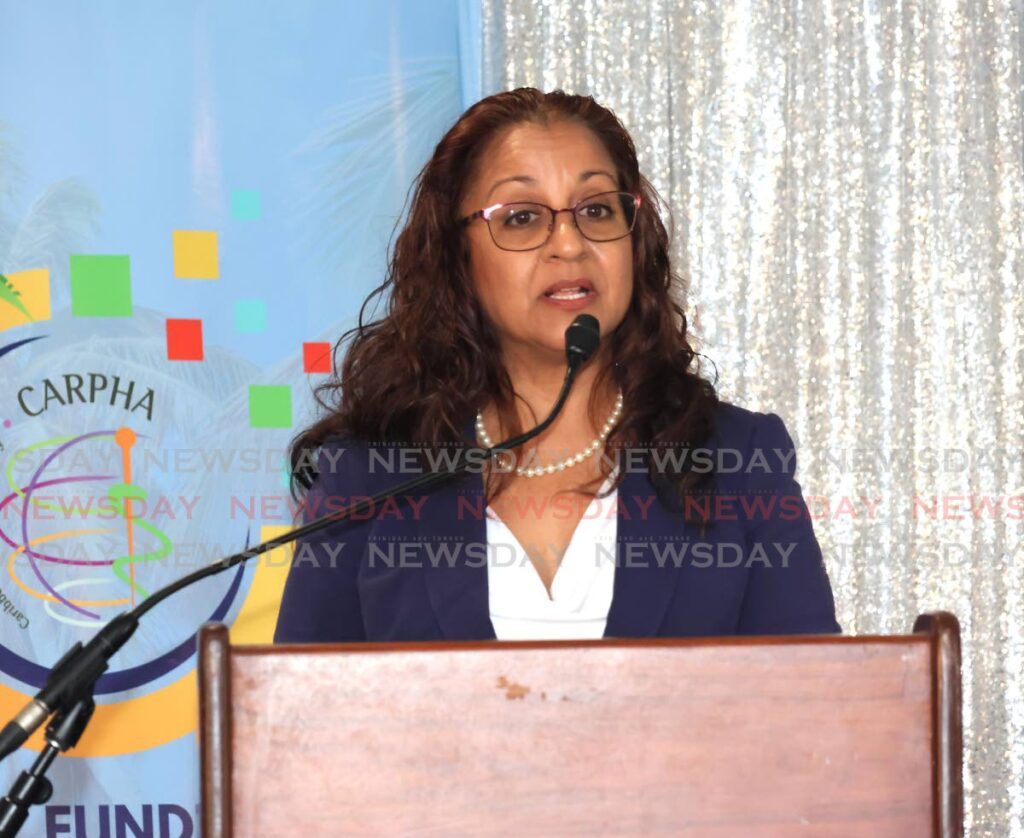Foodborne illnesses make one in 11 people sick in Caribbean

CARPHA Pandemic Fund project director Dr Lisa Indar said approximately one in 49 individuals in the Caribbean contracts a foodborne disease each year due to contaminated food or water, with the incidence rising to one in 11 during large gatherings.
Indar was speaking at the launch of the One Health Multidisciplinary Workshop to Promote Integrated Surveillance for Foodborne Diseases and Zoonoses (infectious diseases that spread from animals to humans) on November 18 at the Hilton Trinidad and Conference Centre.
She said foodborne diseases (FBDs) and zoonoses are significant and persistent challenges in the Caribbean. According to the World Health Organization (WHO), she said, contaminated food causes approximately 600 million illnesses and 420,000 associated deaths annually.
“In the Caribbean, we face additional vulnerabilities due to our socioeconomic realities, varying surveillance and response capacities, reliance on tourism, susceptibility to environmental and climatic changes, and heavy importation of foods.
“Vulnerable populations, particularly children aged one-four, are disproportionately affected. In addition to the public health burden, FBDs pose a significant threat to our economies, especially given the importance of tourism. Outbreaks linked to traveller’s diarrhoea or acute gastroenteritis not only impact health but can also cause reputational damage to destinations striving to promote safer travel in a post-covid19 world.”
Indar said in 2014, Caricom formally adopted a One Health policy, establishing a regional commitment to integrated health approaches across human, animal and environmental sector.
Indar said CARPHA has long championed the One Health approach, integrating epidemiological, laboratory, environmental, and veterinary systems to build a more resilient public health infrastructure.
“We can no longer ignore the fact that human, animal, and ecosystem health are interdependent and linked to their shared environments, with many FBDs being zoonotic, often originating from animals or contaminated environments.
“By addressing food safety along the entire farm-to-fork continuum, we can mitigate risks and ensure sustainable health outcomes for our communities. Ensuring food safety thus requires an integrated farm-to-table, with changes in these relationships increasing the risk of new human and animal diseases emerging and spreading.”
She said CARPHA worked with countries to develop integrated national action plans with PAHO between health, agriculture, environmental health national action plans for 13 Caricom member states.

“We also built capacity-integrated FBD and other zoonotic disease surveillance and outbreak response; laboratory isolation of foodborne diseases for clinical, food and veterinary laboratories in 13 Caricom member states; and advanced food safety training and certification for over 500 individuals.”
Agriculture, Land and Fisheries Ministry representative and Caricom chief veterinary officer Dr Lisa Musai said the Caribbean region has witnessed firsthand the devastating effects that pandemics can have on lives, livelihoods and systems.
“These experiences do emphasise why we need to build integrated and multidisciplinary frameworks to improve surveillance and early detection of emerging health threats, and to effect timely responses to animal health, public health and ecosystem health threats.”
Over 50 people, representing 12 agencies and ten Caricom member states, attended the two-day workshop.
Musai said she hoped the discussions and activities would foster collaboration among experts and stakeholders from diverse fields.
Health Minister Terrence Deyalsingh said the ministry has initiated three measures to ensure what he called "Disease X," whether zoonotic or foodborne, did not spread as covid19 did.
“If we have to tackle the issue of zoonotic diseases and foodborne diseases in the Caribbean, in the Caricom region, where we call ourselves small island developing states, (with) small populations, limited resources, global warming, we are threatened by rising sea levels and all of that – we cannot afford to lose any percentage of our populations, as opposed to a large country with 300 million people. Every individual we lose in a small island developing state is a loss of resources, because our populations are too small and too fragile to withstand these losses.”
He said TT, in its second round of calls from the World Bank, got a grant for US$10 million to fund the TT One Lab Plus initiative, which is an initiative between the ministries of Health and Agriculture, Land and Fisheries and UWI, to set up a laboratory system for surveillance and genomic sequencing. He said PAHO would be the executing agency.
The second initiative was TT joining Prezode (Preventing Zoonotic Disease Emergence), an international initiative to prevent the outbreak of zoonotic pandemics, while ensuring food security and means of subsistence for the poorest communities. Deyalsingh said approximately 30 countries had signed on thus far.
Deyalsingh said the third major initiative was Dr Avery Hinds and another IVCD representative visiting the Centers for Disease Control in the US to view how they managed 50 states from one location.
“They will be viewing their dashboards and surveillance systems, and hopefully when they come back they could implement something so they could track, surveil, trace, and then when you marry that with the One Lab Initiative, CEPI and the 100-day pledge by the UK government, TT could be in a better place to respond to and treat with diseases that threaten our population.”
Deyalsingh said the UK recently signed on with the Coalition for Epidemic Preparedness Innovations (CEPI), and signed a pledge that within 100 days of Disease X, or the next epidemic (food-borne or zoonotic), the world should have access to diagnostics and treatment.
Inter-American Development Bank senior health specialist Ian Ho-A-Shu said several key results have already been achieved since the signing of the Pandemic Fund Technical Cooperation: Reducing the Public Health Impact of Pandemics in the Caribbean through Prevention, Preparedness, and Response with CARPHA in December 2023. These included the event-based disease surveillance system during the T20 Cricket World Cup.
"CARPHA's innovative Digital Mass Gathering Surveillance System captured information in real time, facilitating successful surveillance and response to threats.
"Pandemic Fund grant resources were also used in July, when CARPHA acted quickly with emergency-response support to Caribbean countries to address public health concerns brought about by Hurricane Beryl. The provision of emergency supplies for public health surveillance in those member states helped to mitigate and control the spread of vector-borne diseases and prevent any further strain on national health systems in this time of crisis. "

Comments
"Foodborne illnesses make one in 11 people sick in Caribbean"